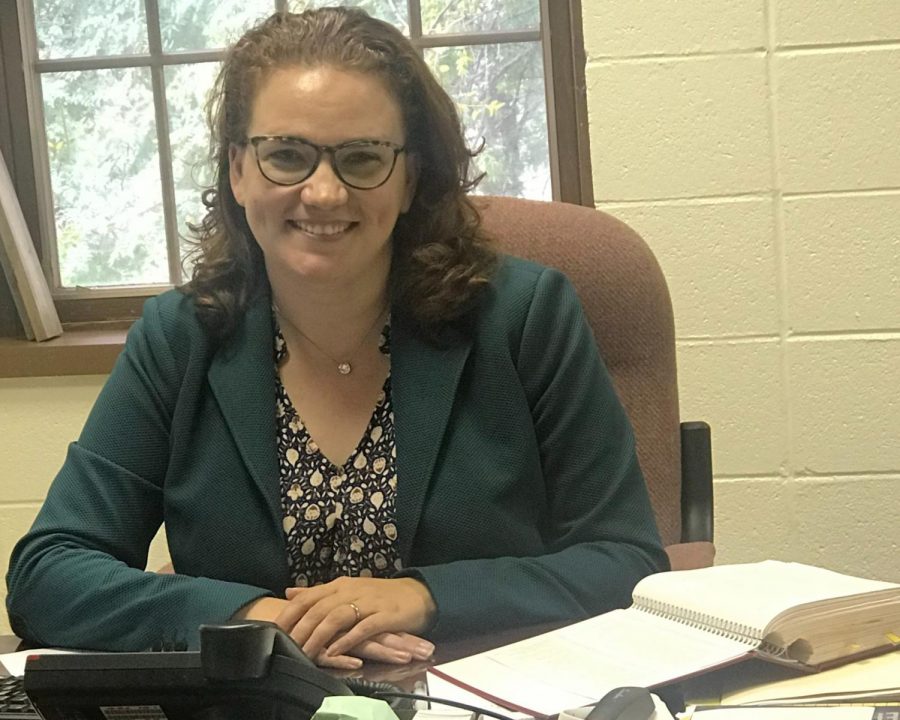Pastor Ziese Hacker joins Lakeland as interim chaplain
September 20, 2018
On Aug. 27, Pastor Rachel Ziese Hacker joined the Lakeland community as the new interim chaplain.
Ziese Hacker is an ordained pastor in the Evangelical Lutheran Church in America and recently served as the campus chaplain at the University of Nebraska-Kearney. She moved to the area this past spring with her husband, Matthew Ziese Hacker.
In high school, Ziese Hacker never thought she would pursue a career in ministry even though both her parents and other family members were clergy. She felt that she needed to “break out” and “find [her] own way.” During her undergraduate years, she got involved with campus ministry and “felt safe asking questions.” According to Ziese Hacker, it was because of her “extraordinary religious studies professors” and the “strong cohort” of people in her program that led her to pursue a career in ministry.
After graduating from Texas Lutheran University with a double major in Theology and International Studies, Ziese Hacker attended Yale Divinity School. She brings to Lakeland five years of previous chaplain experience, and as the new interim chaplain, she will be on campus 15-20 hours a week. Her role will be to support the religious student organizations on campus, hold weekly worship services, be a part of the Lakeland Intervention Team and work with the new Ulrich Scholars. Although she’ll be busy, she hopes to be spending as much time as she can with the students and to bring onto campus regular Bible study sessions.
Her office is located on the second floor of the John Esch Library, and she will be on campus Tuesdays through Thursdays and for special events. Office hours will always be posted on her office door and worship services will be held on Thursdays at 5:00 p.m. in the Ley Chapel. Campus ministry events will be on posters around campus and online on the university calendar.
Ziese Hacker offers five pieces of advice for students who hope to pursue careers in ministry. The first, to “show up and claim your place at the table, don’t wait to be invited.” The second, “read everything and anything.” The third, “listen to people who criticize your particular tradition when they do so in love and out of concern.” The fourth, to “experience different expressions of your faith tradition if you can.” Lastly, to “hang out with people who claim the same faith tradition that you do but might not look like you.”


